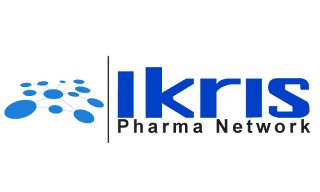Enhertu (Fam-trastuzumab deruxtecan-nxki) is a groundbreaking cancer treatment with a unique mechanism of action. It combines a targeted monoclonal antibody with a potent chemotherapy payload to effectively address HER2-positive breast cancer that has progressed despite prior treatments. By binding to HER2 receptors on cancer cells and releasing a DNA-disrupting payload, Enhertu targets cancer cells specifically while causing the most minor damage to healthy tissue. This innovative therapy offers renewed hope for patients with limited treatment options, significantly advancing the fight against aggressive breast cancer.
Mechanism of Action: Enhertu injection is a type of targeted therapy that operates through a sophisticated mechanism of action. It combines the precision of monoclonal antibodies with the potency of chemotherapy. The medication comprises three essential components:
- A humanized anti-HER2 monoclonal antibody
- A cleavable peptide-based linker
- A topoisomerase I inhibitor payload
This amalgamation allows the drug to target cancer cells overexpressing the HER2 protein.
The monoclonal antibody binds with the HER2 receptors on the surface of cancer cells, acting as a homing device. Once attached, the entire complex is internalized by the cancer cell. Subsequently, the peptide-based linker is cleaved, releasing the topoisomerase I inhibitor payload into the cancer cell. This potent payload disrupts the DNA within the cancer cell, hindering its ability to divide and proliferate. This intricate mechanism ensures that the drug primarily affects cancer cells, minimizing damage to healthy cells.
Indications: Enhertu's remarkable efficacy has led to its approval by the FDA for the treatment of HER2-positive breast cancer that has advanced despite previous treatment attempts. It is specifically indicated for patients who have received prior HER2-targeted therapies and chemotherapy. HER2-positive breast cancer is known for being an aggressive subtype, and Enhertu offers a much-needed option for patients who have limited treatment alternatives.
Side-effects: While Enhertu presents a significant advancement in cancer treatment, it's crucial to be aware of potential Ehertu side effects. Common adverse reactions include nausea, fatigue, vomiting, hair loss, and decreased appetite. Notably, the medication can lead to interstitial lung disease (ILD) or pneumonitis, a severe but rare side-effect requiring vigilant monitoring. Patients are advised to report any persistent cough, difficulty breathing, or fever to their healthcare provider.
Enhertu's cardiac safety is also a consideration, as it can lead to left ventricular dysfunction. Healthcare providers will closely monitor patients' cardiac function before and during treatment.
In conclusion, Enhertu represents a significant advancement in cancer treatment, offering renewed hope for patients with HER2-positive breast cancer. Its innovative mechanism of action, specifically targeting cancer cells while minimizing damage to healthy cells, sets it apart from traditional chemotherapy approaches. The drug's approval for patients who have exhausted other treatment options underscores its potential to extend and improve the quality of life. While vigilance regarding potential side effects is essential, Enhertu shines as a beacon of progress in the ongoing fight against cancer.
.jpg)




No comments:
Post a Comment